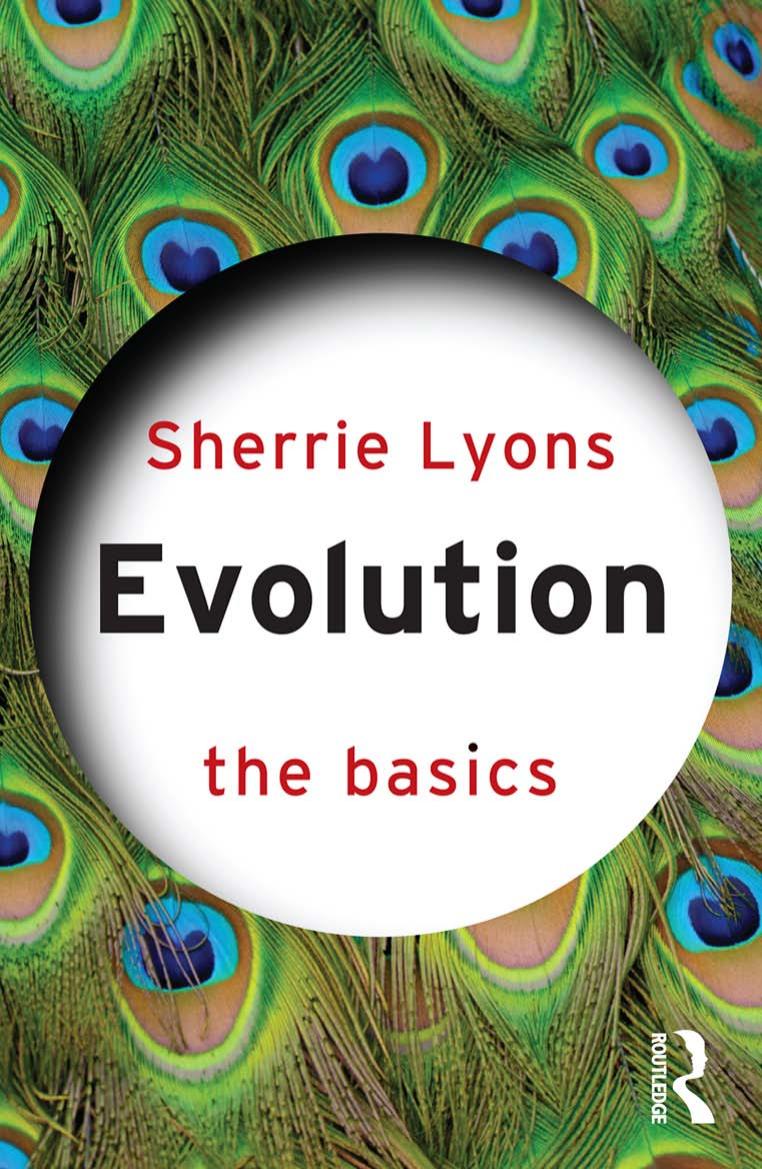Evolution: The Basics by Lyons Sherrie

Author:Lyons, Sherrie
Language: eng
Format: epub, pdf
Publisher: Taylor & Francis
Websites
Evolution Today: How does natural selection work bib.amnh.org/exhibitions/darwin/evolution/ancient.php
Nuts and Bolts of DNA Replication bib.pbs.org/wgbh/evolution/library/06/3/l_063_02.html
Punctuated equilibrium bib.pbs.org/wgbh/evolution/library/03/5/l_035_01.html
Unofficial SJG Archive: Library bib.stephenjaygould.org/library.html
Human Evolution
Humankind’s Place in Nature
Where we come from is a question that has occupied humankind from the time our ancestors had brains big enough to contemplate such questions. While numerous controversies have surrounded evolutionary theory from Darwin’s time to the present, the ones that have garnered the most attention concern claims that have been made in regard to humans, specifically about our nature. Although Darwin did not think humans were an exception to evolution, he was initially reluctant to elaborate on how his theory applied to humans. He knew that any discussion of human evolution would become emotionally charged and highly politicized. This was true in Victorian times and remains so today. Throughout the twentieth century more and more fossils were discovered, pushing human origins further and further back in time and documenting that humans were no exception to Darwin’s theory. We now have a rich fossil record that is filling in the branches of the human tree. Today, advances in molecular genetics are allowing us to trace the lineage of anatomically modern humans in great detail. DNA has even been extracted from Neanderthal bones. Research in animal behavior also demonstrates continuity between animal and human minds. The evidence in favor of human evolution is overwhelming. However, evidence must be interpreted. Dating of remains is often problematical and rarely is anything even close to a complete skeleton found. Experts disagree as to whether certain fossils represent two different species, whether they should be categorized as two different genera, or merely represent sexual dimorphism within a single species. We cannot do experiments that recreate the past. Perhaps most important, behavior does not fossilize. The attempt to build an evolutionary theory of human nature dramatically illustrates the large role interpretation plays in determining the “facts” of human evolution. Facts only have meaning within a theoretical framework and the various theories that have been constructed have been loaded with the cultural values of the researchers. This is true of all science, but has especially plagued the field of human origins where gender, race, and nationalism have significantly influenced the construction of a theory. Because of these problems, it is not inappropriate to refer to theories about human origins as stories. This is not meant in a pejorative sense or to downplay the immense amount of work that has been done in a variety of disciplines from molecular biology to archeology to primatology. This story aspect of human origins is not something that can be gotten rid of by better methodology – that is by better quantitative analysis or higher standards for fieldwork. Obviously, improved methods never hurt any endeavor, but a major aspect of human evolutionary theory has been the actual construction of good stories. All stories are not equally good and the stories that are told are intimately linked with the questions that are asked, which in turn are a reflection of the
Download
This site does not store any files on its server. We only index and link to content provided by other sites. Please contact the content providers to delete copyright contents if any and email us, we'll remove relevant links or contents immediately.
Sapiens: A Brief History of Humankind by Yuval Noah Harari(14375)
Sapiens by Yuval Noah Harari(5367)
Pale Blue Dot by Carl Sagan(5002)
Homo Deus: A Brief History of Tomorrow by Yuval Noah Harari(4910)
Livewired by David Eagleman(3767)
Origin Story: A Big History of Everything by David Christian(3691)
Brief Answers to the Big Questions by Stephen Hawking(3430)
Inferior by Angela Saini(3311)
Origin Story by David Christian(3198)
Signature in the Cell: DNA and the Evidence for Intelligent Design by Stephen C. Meyer(3133)
The Gene: An Intimate History by Siddhartha Mukherjee(3095)
The Evolution of Beauty by Richard O. Prum(2993)
Aliens by Jim Al-Khalili(2828)
How The Mind Works by Steven Pinker(2814)
A Short History of Nearly Everything by Bryson Bill(2691)
Sex at Dawn: The Prehistoric Origins of Modern Sexuality by Ryan Christopher(2528)
From Bacteria to Bach and Back by Daniel C. Dennett(2483)
Endless Forms Most Beautiful by Sean B. Carroll(2479)
Who We Are and How We Got Here by David Reich(2436)
